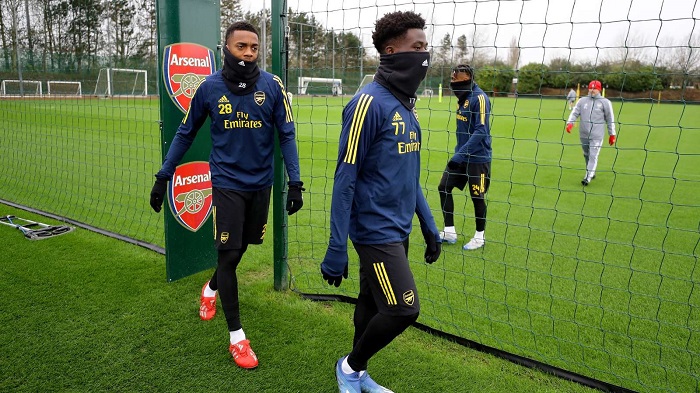The United Kingdom government has given Premier League teams the green light for “close-contact” and “competitive” training amid the coronavirus pandemic.
Covid-19 forced the 2019-20 Premier League season to be postponed in March, but officials are eyeing a mid-June restart following a tentative return to training.
Clubs returned to training in small groups last week amid social-distancing measures after the UK government published its phase one guidance on May 13.
The government released phase two of its guidance for athletes and elite sportsmen on Monday as the Premier Leagues eyes a return to action next month following the Bundesliga’s resumption earlier in May.
“Stage Two training can be described as the resumption of close-contact [interaction within the two-metre social-distancing boundary] training where pairs, small groups and/or teams will be able to interact in much closer contact [e.g. close quarters coaching, combat sports sparring, teams sports tackling, technical equipment sharing, etc],” the guidance read.
“The progression of training into Stage Two is vital to prepare fully for the return of competitive sporting fixtures in many sports. Close-contact training is required to replicate match formations and conditions, so that the sport-specific demands can be placed on the body, mind and senses. Close-contact training develops the sport-specific fitness which is an essential element for player safety and a reduced risk of injury during competition.
“It is anticipated that engaging in this type of training would start with smaller ‘clusters’ of 2-3 athletes and eventually progress to larger groups of 4-12 athletes, and ultimately full-team training, without social distancing possible at all times. Under Stage Two conditions, as per Stage One, social distancing will continue to be the expectation at all other times aside from technical training.”
UK sports minister Nigel Huddleston said: “This new guidance marks the latest phase of a carefully phased return to training process for elite athletes, designed to limit the risk of injury and protect the health and safety of all involved. We are absolutely clear that individual sports must review whether they have the appropriate carefully controlled medical conditions in place before they can proceed, and secure the confidence of athletes, coaches and support staff.
“Given the wide ranging input we have received from medical experts, we believe these pragmatic measures should provide further reassurance that a safe, competitive training environment can be delivered, as we work towards a restart of professional sport behind closed doors when it is safe to do so.”
Liverpool were 25 points clear atop the Premier League through 29 matches when the season came to a halt.



